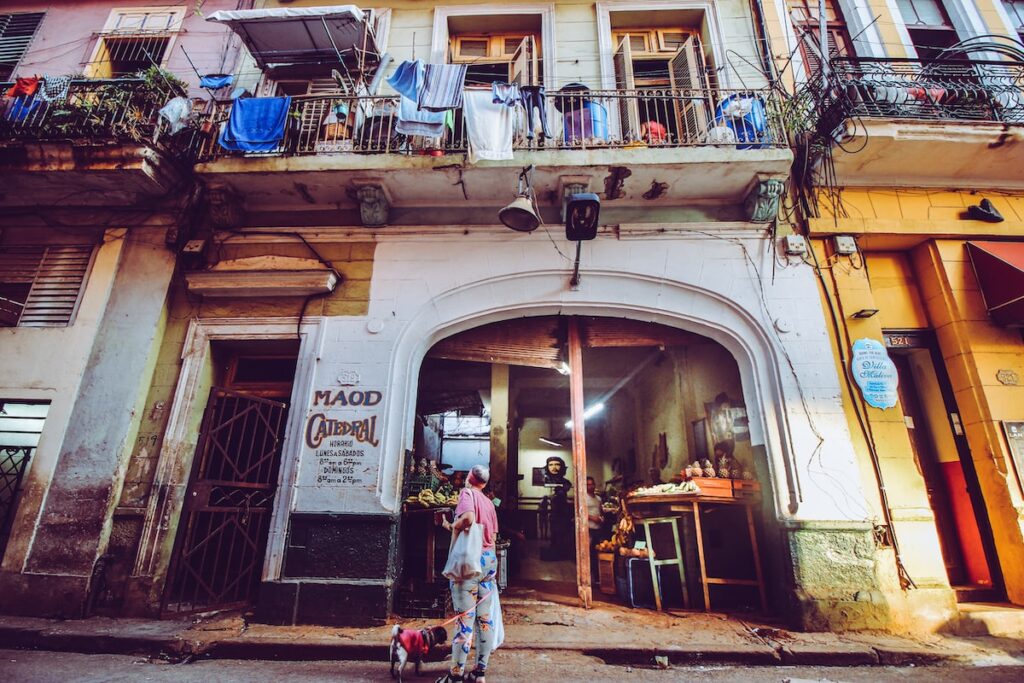Last week it was announced that the bar “Berlín” in the city of Rosario (Argentina) will be transformed into a museum bar in homage to Ernesto “Ché” Guevara. The initiative is led by the bar’s owner, the political party “Ciudad Futura,” and the “La Poderosa” organization.
From Fundación Internacional Bases we have been denouncing for years the cult that is made in his hometown to this homicidal and authoritarian figure.
Thus, for example, our campaign “Remove the tributes to ‘Che’ Guevara” carried out in 2017 aroused the interest of the local, national, Latin American, and world press with mentions, opinion pieces, and interviews in media such as Newsweek (United States), The Economist (United Kingdom), El País (Spain) or the Asahi Shimbun (Japan).
In 2018 we objected to the “Q” trolleybus line having the assassin’s image to celebrate the 90th anniversary of his birth.
Closer in time, we have proposed to buy Ché’s birth house in Cuban currency and not in imperialist US dollars as its owners demand.
Ché: An Assassin
The communist regime established in Cuba by Guevara and his boss Fidel Castro has ruled dictatorially for more than six decades. The “revolution” has committed more than eleven thousand murders. Some executions, in fact, were carried out by Che Guevara personally.
Nearly eighty thousand people have lost their lives trying to escape from the island, while Cuban military interventions abroad have left fourteen thousand dead.
Cuban state terrorism persecutes intellectuals, LGTBQ+ people, and dissidents. The Escambray rebellion alone left more than five thousand dead (mostly peasants, women, and children). Its brutality has generated almost one million seven hundred thousand exiles who still await justice.
For their part, the more than eleven million Cubans imprisoned on the island survive in poverty, struggling to get milk, with a terrible public health system, and deplorable living conditions.
The Ché Industrial Complex
Ignoring all the evidence against him, both the Municipality of Rosario and the Government of the Province of Santa Fe have been promoting a spurious “Ché Industrial Complex” for years. This ranges from putting a statue in a square to naming a viaduct or offering a walking tour on the website of the Municipality.
However, the project of this museum bar would seem to represent a suggestive change. This time it would not be the populist state which promotes the project but the owner of a business associated with other private ones. Will we be in the presence of an actual private Guevarist enterprise?
In fact, just as some people sell T-shirts or photos of the revolutionary, local politicians, an NGO, and the property owner are joining forces to take advantage of the fact that Rosario is the birthplace of Guevara and exploit it commercially.
The declarations of Rosario councilman Juan Monteverde (Ciudad Futura) even hint at praise for private initiative. “We are changing history; no state administration has ever done so,” he said at the presentation of the museum bar.
Speaking as the CEO of a startup, Mr. Monteverde also stated that “the goal is for there to be different economic units with different forms of management. We call it a cooperative consortium where projects of different natures are brought together, such as a worker cooperative, a public entity, or social movements. The idea is that there is a plural representation and that the projects are self-sustaining.”
To glorify a criminal violator of Human Rights is perhaps a skillful, although unprincipled, Marketing of Death strategy. With other protagonists, Ciudad Futura would call it “wild capitalism.”
Cronyism
In any case, colorful management concepts such as “cooperation consortium” should not hide the fact that Mr. Monteverde also wants “projects with public entities” for his startup. This is worrisome since it refers to the worst practices of rent-seeking and anti-competitive cronies that have damaged our country so much.
If the business model of the bar museum can only be self-sustaining based on state subsidies, the Guevarist enterprise falls back into the vices of the Ché Industrial Complex: to be a viable product only because it is subsidized.
Unfortunately, the Ciudad Futura party has precedents in this regard. In 2021 and with most of Rosario’s businesses destroyed by the pandemic and the confinements, the councilmen of the said party did not hesitate to obtain an exemption from the General Real Estate Tax (TGI) for “Distrito Siete.” D7 is a “cultural space” closely linked to Ciudad Futura’s proselytizing activities.
It is insulting that the person who submitted the request to exempt D7 from paying the municipal tax explained that he was doing so “because we have been unable to develop our activities since the beginning of the pandemic and because of the difficulty to afford the payment of such concepts.” Such was the situation of all those involved in gastronomy and entertainment in the city.
Ciudad Futura did not seem to care much about this fact. Solidarity begins (and ends) at home.
Ostberlin
Ironically, the bar that will become a museum is called “Berlin.” Few cities are so representative of the barbarism of Che Guevara’s ideology as the German capital. As Jean-François Revel explained, “what marks the failure of communism is not the fall of the Berlin Wall in 1989, but its construction in 1961.”
Another unfortunate coincidence is that “La Poderosa,” a grassroots favela organization among those who want to create the museum.
Maybe these coincidences reveal an omen: the future city of Che Guevara is nothing more than a slum-like East Berlin.
* Federico N. Fernández is Executive Director at Somos Innovación (a Latin American pro-innovation alliance) and CEO at We Are Innovation (Somos Innovación’s sister organization for Europe). Federico is Founder and President of Fundación Internacional Bases (Rosario, Argentina) and also the Chairman of the Organizing Committee of the International Conference “The Austrian School of Economics in the 21st Century,” which takes place in Europe and LatAm alternatively.




